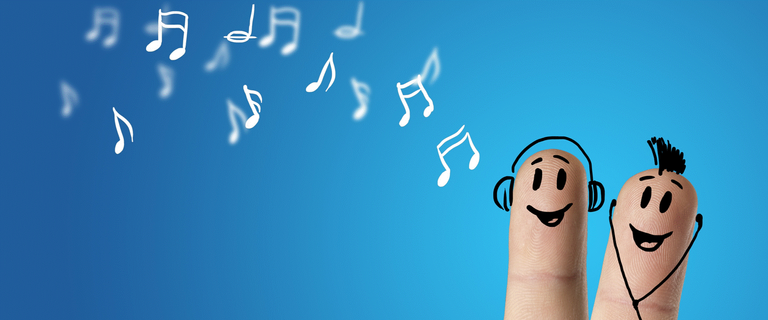Music ignites our emotions through varied memories. Listening to music is one of the few activities that involve the use of the entire brain. It is intrinsic to all cultures and can have surprising benefits by listening to it. Discover below what are the benefits of listening to music for health.

Music is an increasingly recurrent complement in hospitals, as it helps to reduce pain and promotes the production of endorphins.
Effective for pain.
Some of the benefits of listening to music are that it can reduce the chronic pain of a variety of painful diseases, such as osteoarthritis and rheumatoid arthritis, up to 21% and depression up to 25%, according to studies.
Music therapy is increasingly used in hospitals to reduce the need for medication during labor, decrease postoperative pain and supplement the use of anesthesia during surgery. All this happens because music serves as a distractor, gives a sense of control and causes the body to release endorphins to counteract pain. In addition, slow music helps reduce breathing and heart rate, avoiding the feeling of anguish.
Reduces blood pressure.
By listening to soothing music in the morning and afternoon, people with high blood pressure can train to lower their blood pressure and keep it low. According to research by the American Society of Hypertension, in New Orleans, listening to only 30 minutes of classical, Celtic or raga music every day can significantly reduce high blood pressure.
Accelerates recovery after having a stroke.
A daily dose of one of your favorite tunes, whether pop, classical or jazz, can accelerate the recovery from debilitating hemorrhages or paralysis, according to the latest research. When stroke patients listen to music for a couple of hours each day, verbal memory and attention span improve significantly.
Chronic headaches and migraine.
Another benefit of listening to music is that it can help those who suffer from migraine! It also helps to combat chronic headache and reduce the intensity, frequency and duration of headaches.
Increase your immunity.
Scientists explain that music can create a positive and profound emotional experience, which leads to the secretion of immune stimulation hormones. This contributes to a reduction of the factors responsible for the disease. Listening to music or singing can also lower the levels of cortisol, the hormone related to stress. Higher levels of cortisol can lead to a decrease in the immune response.
Increase memory performance learning.
Studies have confirmed that listening to music or playing an instrument can really make you learn better. The music of Mozart and the baroque, activate the left and right brain. The simultaneous left and right brain action maximizes learning and information retention. The information being studied activates the left hemisphere, while music activates the right hemisphere of the brain. In addition, activities that attach to both sides of the brain at the same time, such as playing an instrument and singing, make the brain more capable of processing information.
It improves concentration and attention.
Relaxing music improves the duration and intensity of concentration at all ages and skill levels.
Improves the movement and coordination of the body.
Music reduces muscle tension and body movement and improves coordination. In addition, it plays an important role in the development, maintenance and restoration of physical function in the rehabilitation of people with movement disorders.
Hi! I am a robot. I just upvoted you! I found similar content that readers might be interested in:
https://www.youtube.com/watch?v=KPV9wyz5LQ0Good read! I always notice how my mood improves when I put on good tunes!
Hi @miyexi, you sent the wrong amount. I processed your post manually anyway for this time and sent you a bid bot upvote to cover my price increase =]